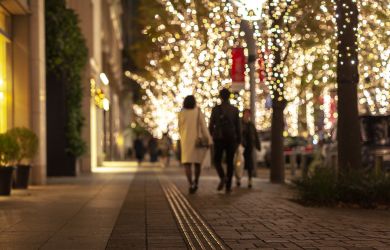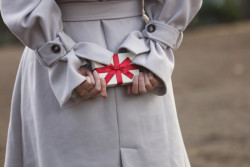
Originally published on metropolis.co.jp on October 2012
CLASS DISMISSED
- Computer servers at several elite Japanese schools, including the University of Tokyo and Kyoto University, were hacked by a group of online bandits known as Ghost Shell.
- The servers at second-tier Osaka City University were also attacked, leading a spokesperson to say, “We assume our school was mistaken for Osaka University.”
- The head of a living facility for the disabled in Chiba was accused of abusing residents by slapping them, giving them cold-water baths, and making them “massage her legs late at night.”
- A junior high school student in Shiga said that several classmates forced him into an empty classroom and made him take off his clothes. The boy came forward after a teacher noticed he was acting “unusual.”
BREAKTHROUGHS
- A Chiba University-led research team says it may have discovered a previously unknown class of microorganism in the seabed near the Izu Islands. Scientists hope the find will “help shed light on the evolution from simple to complex life.”
- Researchers at Waseda University have determined that the optimal times for eating breakfast, lunch and dinner are 7am, noon and 7pm, respectively. They say the risk of obesity rises when “the intervals between lunch and dinner and between dinner and breakfast become almost the same”—in other words, don’t eat a late dinner, fatass.
- A research team studying a species of wild cat indigenous to an island in western Japan discovered that it has “protein deposits similar to those found in the brains of humans with Alzheimer’s disease.”
- Japan Press Inc. announced it has established an award in honor of Mika Yamamoto, the veteran freelance journalist who was slain in August covering the unrest in Syria. The prize will recognize “distinguished reports from abroad.”
ONWARD AND UPWARD
- The sports ministry says the physical strength of Japanese children has improved “significantly” since the late 1990s.
- A 42-year-old former ASDF pilot is set to become Japan’s tenth astronaut. Kimiya Yui will blast off for the International Space Station aboard a Soyuz rocket in mid-2015.
- Japan and the US launched a new “consultation body” to help coordinate research efforts in space, including “enhancing disaster preparedness and environmental preservation.”
- At the Japan International Aerospace Exhibition in Nagoya, Mitsubishi unveiled a mock-up of its much talked about regional jet. The expo drew 665 companies and organizations from 32 countries and territories.
SECOND THOUGHTS
- The infrastructure ministry says it’s considering a plan for easing traffic congestion in Tokyo by moving elevated expressways underground. The project would cost an eye-glazing ¥4.3 trillion.
- An Osaka man who was arrested for posting a threat to commit mass murder on a municipal website was released when authorities realized that someone else likely posted the message after “gaining remote control of the man’s PC.”
- Nissan head honcho Carlos Ghosn wants to revive the Datsun nameplate for a line of ultra-cheap cars to be sold in developing nations.
- It was reported that Japanese toymakers are branching out into fields like children’s fashion as a way of combatting a decline in business caused by sinking birthrates.
WELCOME TO THE 21ST CENTURY

- The government is considering a proposal that would allow the emperor’s daughters and granddaughters to “establish their own imperial branches after marriage to commoners.”
- The Tokyo Bar Association opened an office in Mita to offer legal advice to foreign residents. The new facility’s name doesn’t exactly roll off the tongue, though: Tokyo Public Law Office, Mita Branch—Foreigners and International Service Section.
- Japanese defense officials are in discussions with counterparts from 10 ASEAN states to form a cyber-security network to help combat the rise of computer attacks from China.
- The TMG says the city’s worst train stations in terms of illegally parked bicycles are Tokyo, Shinjuku, Ikebukuro and Ueno.
THIS JUST IN
- Health officials in Kanagawa went on alert after 816kg of sea urchins imported from China were found to contain high levels of a bacteria that can cause “acute abdominal pains and diarrhea.”
- A man and woman in their early 20s were arrested for stealing ¥22,000 worth of items from a hotel room in Ehime. The swag included “two bathrobes, an ashtray [and] an accessory case.”
- The University of Tokyo rose from 30th to 27th on the Times of London’s annual list of the world’s top universities.
- The other four Japanese schools on the list, though, all dropped.
SALARYMAN SYNDROME
- A court in Kofu determined that the suicide of an employee at a local Red Cross hospital was the result of overwork. The 43-year-old cook had put in 166 hours of overtime in the month before he died in April 2007.
- The Tokyo District Court ordered the Bloomberg news agency to annul the firing of a reporter who failed to meet goals set forth in a performance improvement plan, or PIP. It’s said to be the first case in Japan “in which a dismissal based on PIP was found invalid.”
- Japan’s newly appointed justice minister, who also serves as minister for the North Korean abduction issue, admitted to accepting ¥420,000 of “donations” from a Chinese company in possible violation of the Political Funds Control Law.
- The NPA says the number of traffic infractions committed by bicyclists around the country has shot up by 6.8 percent since 2007. Just 0.4 percent of the cases have resulted in charges being filed, though.
Compiled from reports by AP, Japan Today, The Japan Times, Jiji, The Tokyo Reporter, Japan Probe, The Mainichi, Daily Yomiuri, AFP, Reuters and Kyodo







